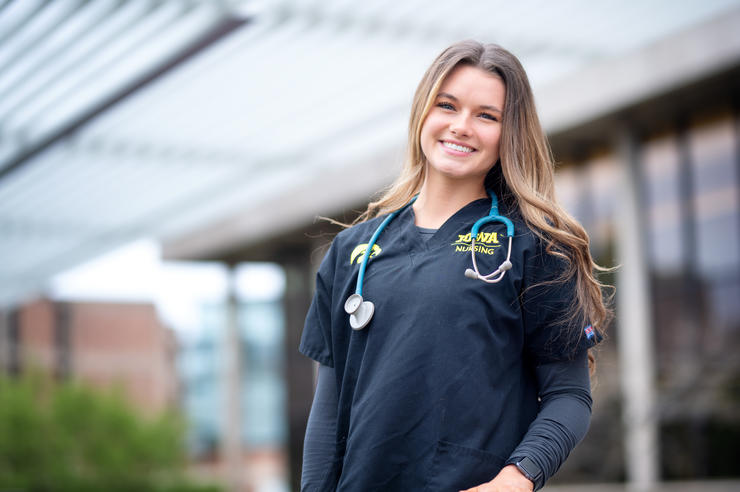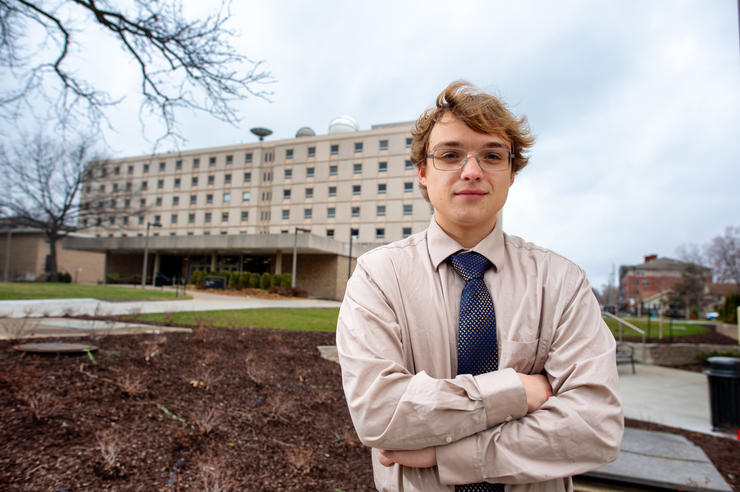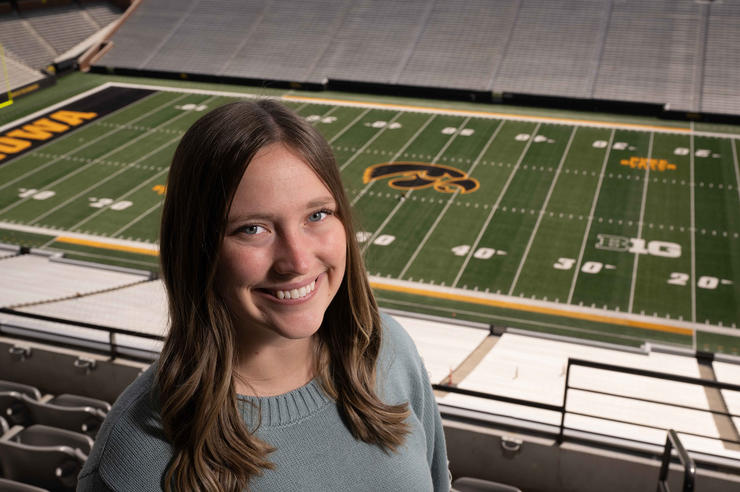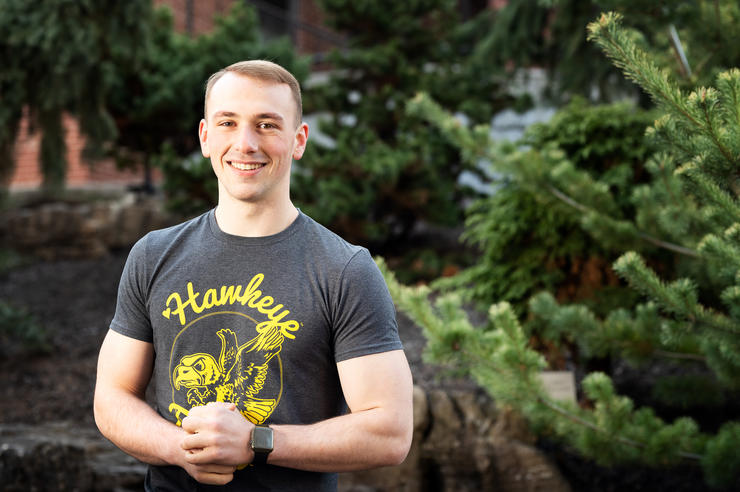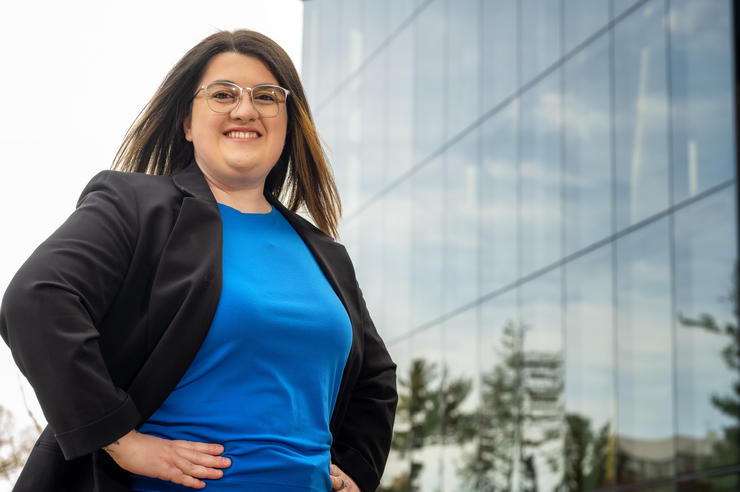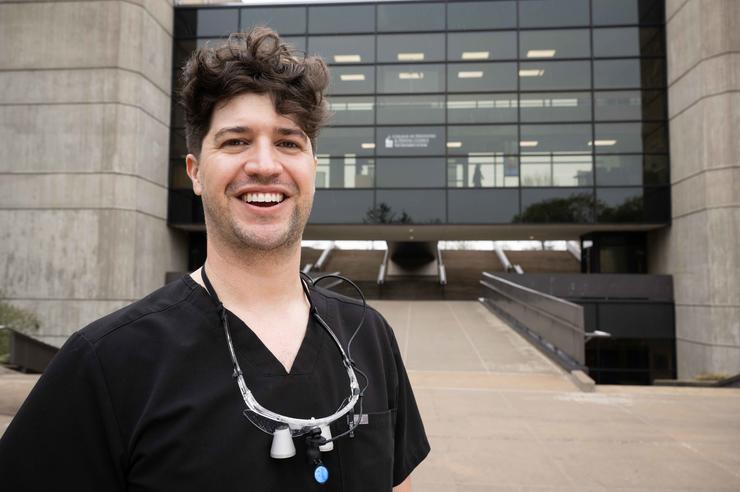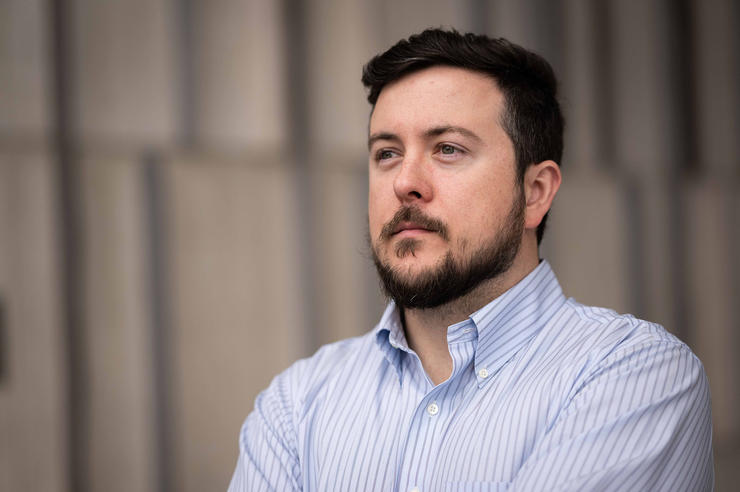Overcoming life struggles to become ‘triple threat’
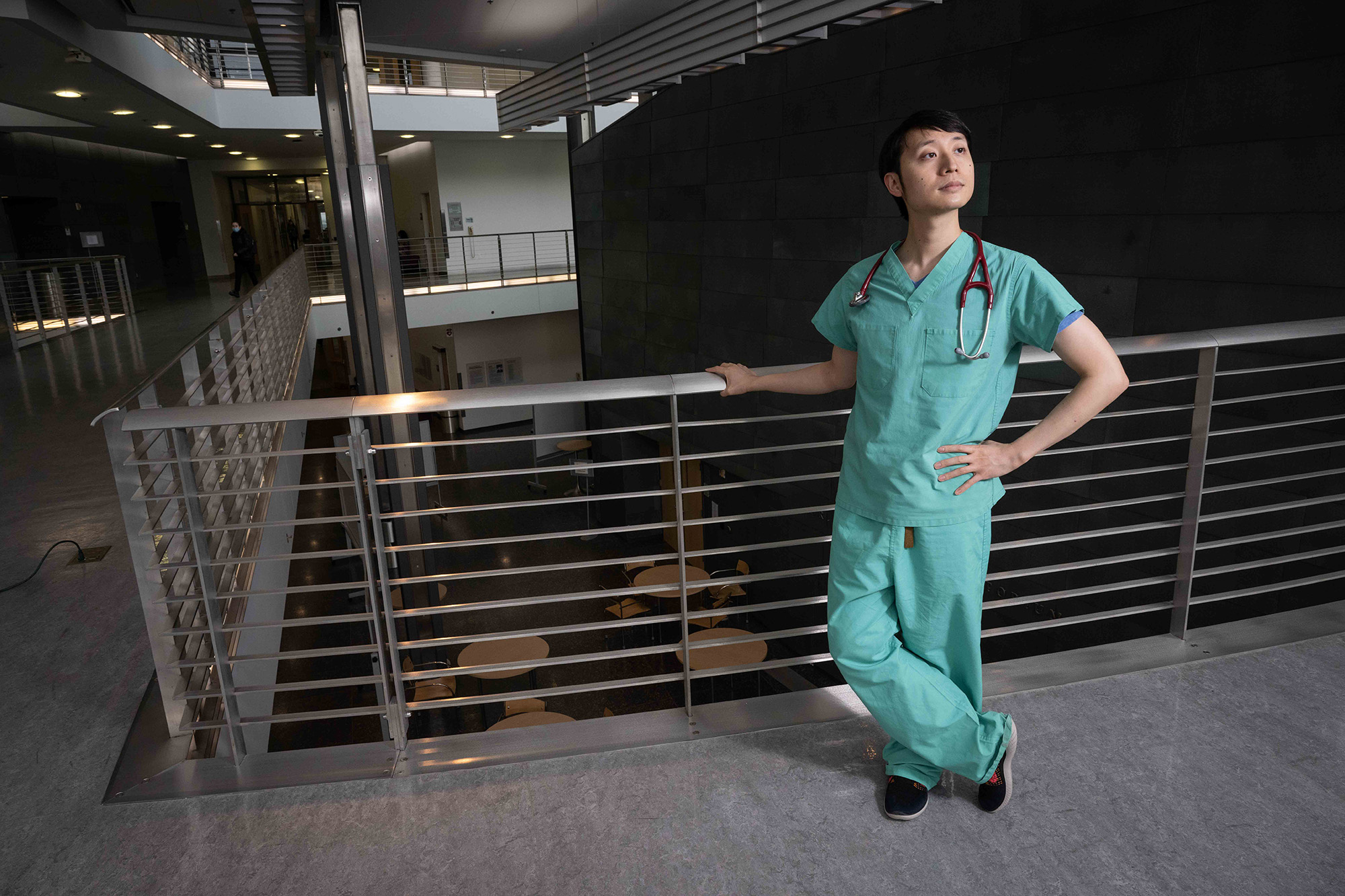
As a medical student, Thomas Pak has completed a lot of rotations.
A favorite, he says, was when he visited with patients in the Child and Adolescent Psychiatry unit at University of Iowa Stead Family Children’s Hospital.
“A lot of these kids say they feel alone or no one understands them, and they’re just going through a difficult time in their lives. They could go down this really bad road,” Pak says.
“I see in them a lot of the struggles I dealt with,” Pak continues. “I was so fortunate to turn out OK. I had some great mentors, teachers, and others, but I could have easily gone the other way. I could have had depression that spiraled badly, or maybe an addiction.”
Continuously funded by the National Institutes of Health since 1977, the Iowa Medical Scientist Training Program at the University of Iowa trains students to become future leaders of academic medicine and medical research. The Iowa MSTP has hundreds of alumni with careers spanning the spectrum from basic science research to clinical medicine and many variations in between.
Pak has overcome his own challenges to arrive at a crowning moment: This month, he will earn joint doctorate and medical degrees through the Medical Scientist Training Program at the University of Iowa.
Pak’s parents emigrated from South Korea—his father settling in the Des Moines area as a young boy, and his mother later as a bride. They struggled to recreate the financial security attained by previous Pak generations who raised and sold cattle in their homeland. He says his father found only sporadic work while his mother was a hairstylist. They divorced when Pak was 4 or 5.
“When we lived with my father and he didn’t have a job, we didn’t have a place,” Pak says. “Sometimes we’d live with other families, or friends.”
The Pak family network in the Des Moines area was extensive. At least six of Pak’s father’s eight sisters moved from Korea to Iowa, and they helped each other. Pak remembers large family gatherings centered around Korean customs, such as celebrating the Korean Lunar New Year and Jesa, memorial ceremonies for family members or ancestors who have died.
“These are traditions we have together,” Pak says.
Despite home-life challenges, Pak excelled in school and attended Johns Hopkins University in Baltimore, where in 2012 he earned a degree in neuroscience, with a minor in bioethics. While in school, he volunteered at the Baltimore Rescue Mission Clinic, a free medical clinic affiliated with an inner-city homeless shelter.
Pak helped care for a lot of people with mental-health difficulties. He realized their plight was not simply a medical issue.
“Psychiatric diseases are multifaceted. There’s the biology of it, but also the social aspect,” Pak says. “It’s important to make certain that there are resources for these patients, such as housing, food, and employment, to make certain these patients have basic necessities, because you need that for your health care.”
He has carried that ethos through the medical and doctoral programs at Iowa, which he chose, he says, due to its long, storied history in psychiatry, national ranking, research reputation, and because it’s in Pak’s home state. He describes his approach as a “triple threat,” combining his interests in medicine, research, and advocacy that he hopes will advance the welfare for all patients, regardless of ethnicity, socioeconomic status, or health.
“You can be a great clinician, you can be a great researcher, but if there’s not access to treatment, then patients won’t be able to get better,” Pak says. “So, it really opened my eyes that if you really want to optimize care, you have to look at all three facets.”
“A lot of kids say they feel alone or no one understands them, and they’re just going through difficult time in their lives. I see in them a lot of the struggles I dealt with. I was so fortunate to turn out OK.”
Before he enrolled in medical school, Pak explored the research landscape. He met with Val Sheffield, professor of pediatrics and ophthalmology and visual sciences, to ask about opportunities. Sheffield, wanting to gauge sincere interest, gave Pak some reading assignments related to his research and told him to return if he were still interested. Pak did, and stayed with Sheffield’s group throughout medical school, twice earning a Howard Hughes Medical Institute (HHMI) fellowship to conduct research full time.
Sheffield says Pak’s disadvantaged background gives him an unusual perspective on life that could serve him well as a clinician and as a researcher.
“Thomas is a caring and compassionate individual who has a strong desire to contribute to society as both a physician and scientist,” says Sheffield, the Roy J. Carver Chair in Molecular Genetics. “He is willing to help anyone, even at the expense of his own time and welfare.”
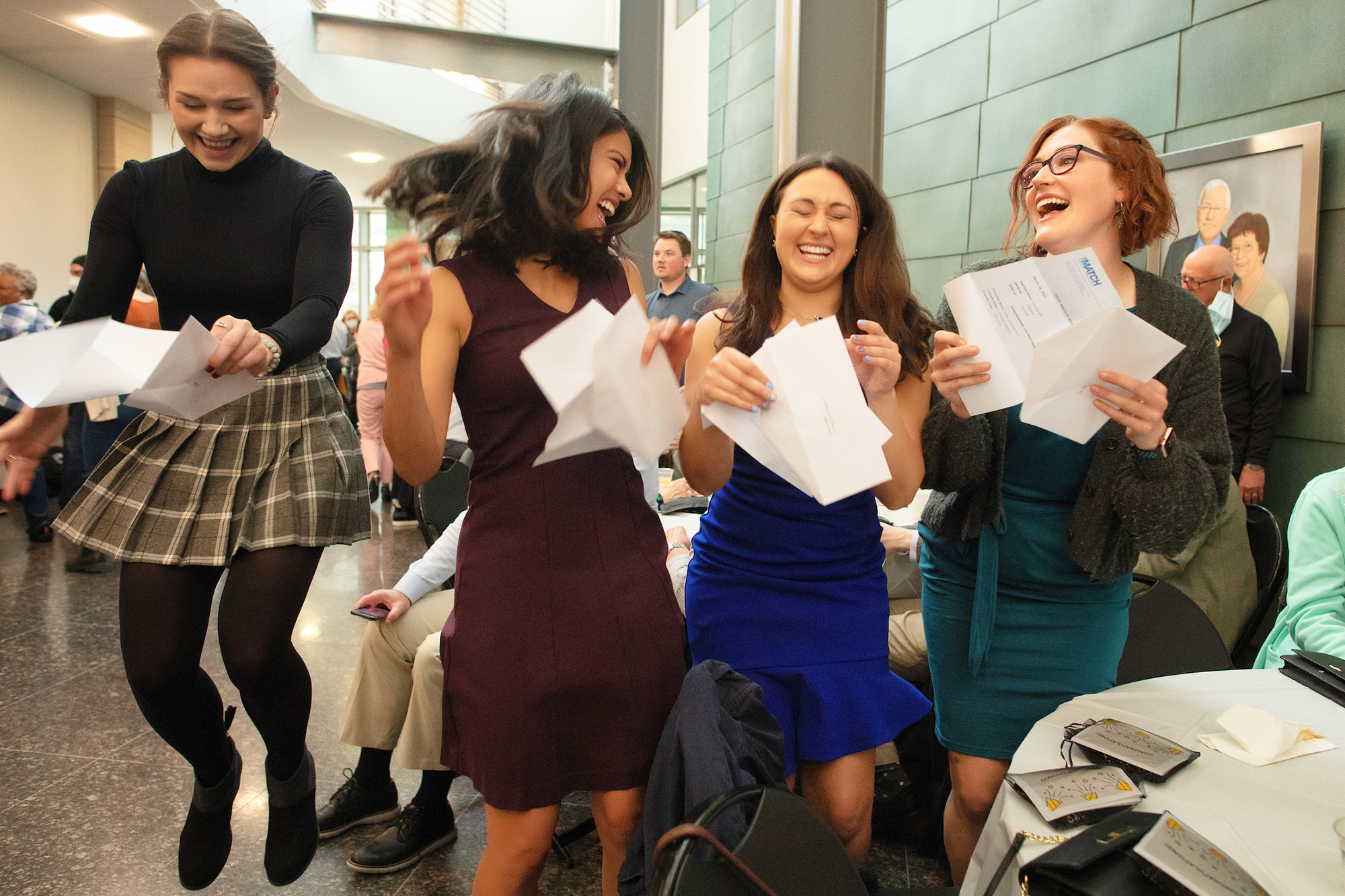
The ultimate day in medical education arrived in March for 152 senior medical students in the University of Iowa Carver College of Medicine. More than a quarter of these graduating students will train in the state of Iowa.
Pak witnessed the need for great care, but also the importance to have clear, understandable health care guidelines and access to insurance, when, in 2014, he lost his younger cousin to complications of sepsis. Two years later, his mother contracted breast cancer, during Pak’s third year in medical school. His mother’s disease progressed to stage II, and she underwent chemotherapy and radiation, causing hair loss, brain fog, blurred vision, and other side effects. Eventually, his mother recovered, and her cancer is in remission.
“It was a very long, intense journey,” Pak says. “I saw how important it was to have good doctors who could help us understand the disease, explain the treatments they were giving her, and the likely side effects. They were very honest with us, and passionate about her care.”
The next step in Pak’s journey is to join a research track residency program, called Translational Research Activities in Neuropsychiatry (TRAIN), beginning this summer at the University of Texas Southwestern. Pak’s research will be funded by the National Institute of Mental Health, the lead federal agency for research on mental disorders.
“I want to be a good psychiatrist, but I also want to get good research training,” he says. “The goal is to train physician scientists.”
Even then, the children he visited with won’t be far from his mind—or heart.
“I think in child psychiatry, you have this potential to effect huge change,” Pak says. “If you can get them on the right medications, the right course, help parents understand what the child is dealing with, encourage them to reach out to their kids, you can really change their trajectories and see them really blossom.”

